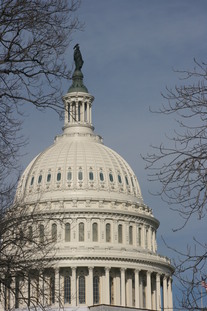| | pacifists and speaking out for bravery. It served their purposes, so long as the rest of the poem wasn’t recited. And, as I said, people were pseudo informed. Today, lots of people fall into the “uninformed and proud of it” category. If it doesn’t come across their iPod or smartphone, they don’t know about it, and it won’t come across those devices unless they expressly reach out and grab it. With the government poised to shut down at midnight over a political struggle that involves Obamacare, the Keystone pipeline and other things, people I speak with still are generally unaware anything is about to happen. So I ask today, with apologies to Brecht and my old Hippie friends, “What if they shut down the government and nobody noticed?” If you think that sounds preposterous, you’re probably listening to the politicians. President Obama said Monday a shutdown would throw a “wrench” into the economy. We’ve heard that before. Just ask yourself this, when was the last time you heard anyone mention the word “sequestration”? That was the word that described a set of across-the-board budget cuts that took effect last March. They were designed to be so gosh-darned awful that Republicans and Democrats would have to compromise to fix the nation’s long-term budget problems in order to avoid them. Failure to do so would bring such harm to the American people that it would be political suicide. Hmm. Seven months later we seem to be doing just fine. The economy isn’t doing backflips, but it’s been years since we’ve seen those. Sequestration may have been a dumb way to cut the government, but no one is marching in the streets demanding an end to it. A government shutdown would affect non-essential services. The big entitlements — Social Security, Medicare and Medicaid — would continue handing out benefits. Senior citizens wouldn’t mobilize. The military still would get paid. Courts would be hobbled, but would keep going for awhile. Private businesses would keep humming. Your local governments would remain open, picking up garbage, sweeping the streets, dousing fires and catching bad guys. Sure, national parks and museums would close, but how many people are planning family vacations to those spots in October? It may be April before anyone notices. The IRS might have to put audits on hold. I don’t anticipate many riots over that one. And about 800,000 workers associated with the government would be furloughed, without pay. That would have a negative effect on the economy, but keep in mind the total U.S. workforce stands at about 155 million people. How ignorant are Americans about all this? That’s hard to say, but you might go broke underestimating it. CNBC did a poll. It asked half the respondents whether they favored Obamacare and the other half whether they favored the Affordable Care Act. If you’re informed and savvy, you know those are two names for the very same thing. And yet the poll found that 46 percent dislike Obamacare and only 37 percent felt the same way about the Affordable Care Act. Maybe the randomly selected respondents would have reacted just the same if the questions were reversed, but I doubt it. Call me a skeptic, but I’m guessing a lot of people had no idea what the pollster on the phone was talking about. I’m well aware that shutting the government down is not the same as sequestration. It’s a much more serious thing. When Republicans last tried this, in 1995, they lost the public-opinion battle big time. But people weren’t locked into their own little electronic worlds quite as much back then. Back to the poem about what would happen if nobody came to the war. The next line, never quoted by the anti-war movement, said, “Why, then, the war would come to you!” We may learn soon that we don’t need as much government as we think we do. But we eventually will learn that we need one that pays its bills and quits running up debt like a college kid with a credit card and a yen for pizza parties. That’s the real battle — the one in which we all should enlist. |
|
0 Comments
Your comment will be posted after it is approved.
Leave a Reply. |
Search this siteLike what you read here? Please subscribe below, and we'll let you know when there is a new opinion.
The author
Jay Evensen is the Opinion Editor of the Deseret News. He has more than 40 years experience as a reporter, editor and editorial writer in Oklahoma, New York City, Las Vegas and Salt Lake City. He also has been an adjunct journalism professor at Brigham Young and Weber State universities. Archives
July 2024
Categories
All
Links
|


 RSS Feed
RSS Feed

